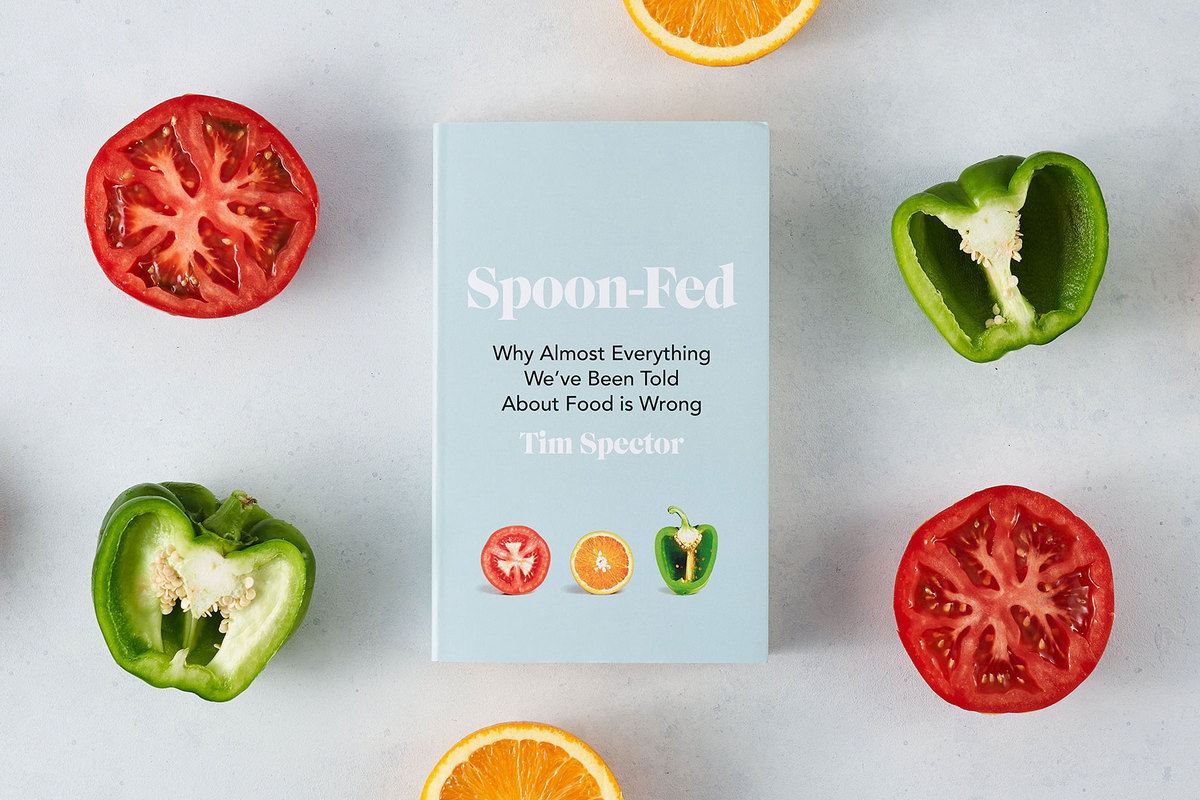- Home |
- Search Results |
- “Tackling obesity and Covid-19 through good food”: Tim Spector on Spoon-Fed
“Tackling obesity and Covid-19 through good food”: Tim Spector on Spoon-Fed
In the UK, we currently have the worst excess death rate in Europe. At the same time, nearly three in ten Brits are obese. Tim Spector, author of Spoon-Fed, believes that good nutrition – or lack of it – is the thread that ties these issues together.

In the UK, we eat more ultra-processed food than any other country in Europe
Boris Johnson has launched a 'war on obesity', aiming to tackle rising rates of obesity through measures such as banning ‘buy one, get one free’ deals on unhealthy snacks, putting calorie counts on restaurant menus and restricting junk-food advertising on TV before 9pm. But these measures are superficial and fail to address the underlying issues.
Data from our COVID Symptom Study app – which now has more than 4 million users in the UK, US and Sweden logging their health on a daily basis – has confirmed that people who are very overweight are tend to suffer the most dangerous effects of coronavirus and are more likely to end up in hospital with the disease. What’s more, being overweight increases the risk of health conditions such as diabetes and heart disease, which are also associated with worse outcomes from COVID-19. We asked the COVID Symptom Study app users to tell us how their eating and drinking habits had changed during lockdown. Around 30 per cent had gained an average of 6 lbs and increased their snacking. Snack foods are often highly processed, rich in saturated fat and starch, contain added sugar or sweeteners, and are low in fibre, which trigger unhealthy metabolic responses. Highly processed food leaves us hungry for more rather than sated. But these foods are cheap to make and profitable for the food industry. In the UK, we eat more ultra-processed food than any other country in Europe, partly due to the strong food industry lobby and its powerful marketing campaigns.
We all have to eat every single day and make hundreds of daily food choices, yet most of us get no formal education in food and nutrition
What’s perhaps less well known is that a diet of ultra-processed food with its many added chemicals and low fibre also reduces the diversity of good bacteria that live in the gut (the microbiome), which play a vital role in helping us to digest food and stay healthy. A healthy microbiome is essential for a strong immune system.
We all have to eat every single day and make hundreds of daily food choices, yet most of us get no formal education in food and nutrition. So why don’t we make food education a compulsory subject from nursery school onwards? Younger children can start by learning about how to grow and cook edible plants, while older children should be able to prepare a healthy meal from scratch with a few simple ingredients by the time they leave school. And parents also have a role to play by introducing a much wider variety of new foods to children early on in life and encouraging them to take an interest in what they’re eating and how it’s made. Health professionals are no better. I was taught virtually nothing about nutrition when I was at medical school, and little has changed today.
Access to healthy, affordable food is also key
Access to healthy, affordable food is also key. In a world where a snack bar costs less than an apple, and a frozen chicken less than a beer, we should make fresh produce and healthy options much cheaper and more convenient than unhealthy options. Extending the sugar tax to other items was the obvious move for Boris, but this was fiercely opposed by the billion-pound food industry, which has a vested interest in peddling junk food.
The pandemic has been distressing for many of us. But it might also be an opportunity to think more deeply and more boldly about what good nutrition and health might look like in the future. Not only will this help reduce the risk of becoming seriously ill from COVID-19, but it will also support the many people recovering from coronavirus in the months and years to come.
The future of nutrition must be based on the understanding that each person’s body works differently
We have to realise that conventional one-size-fits-all dietary guidelines are now redundant. Recent results from our PREDICT study – the largest nutritional research programme of its kind in the world – show that even genetically identical twins can respond to the same foods in very different ways. The future of nutrition must be based on the understanding that each person’s body works differently.
In these unpredictable times food has been a source of comfort, delight and inspiration for many of us, and it may also be one of the most important medicines we possess.
Tim Spector MD is Professor of Genetic Epidemiology, King’s College London, honorary physician at Guys and St Thomas’ Hospital, the PI of the Covid Symptom Study app and scientific co-founder of health science company ZOE. He is the author of Spoon-Fed. @timspector
Sign up to hear more from VINTAGE Books
By signing up, I confirm that I'm over 16. To find out what personal data we collect and how we use it, please visit our Privacy Policy.